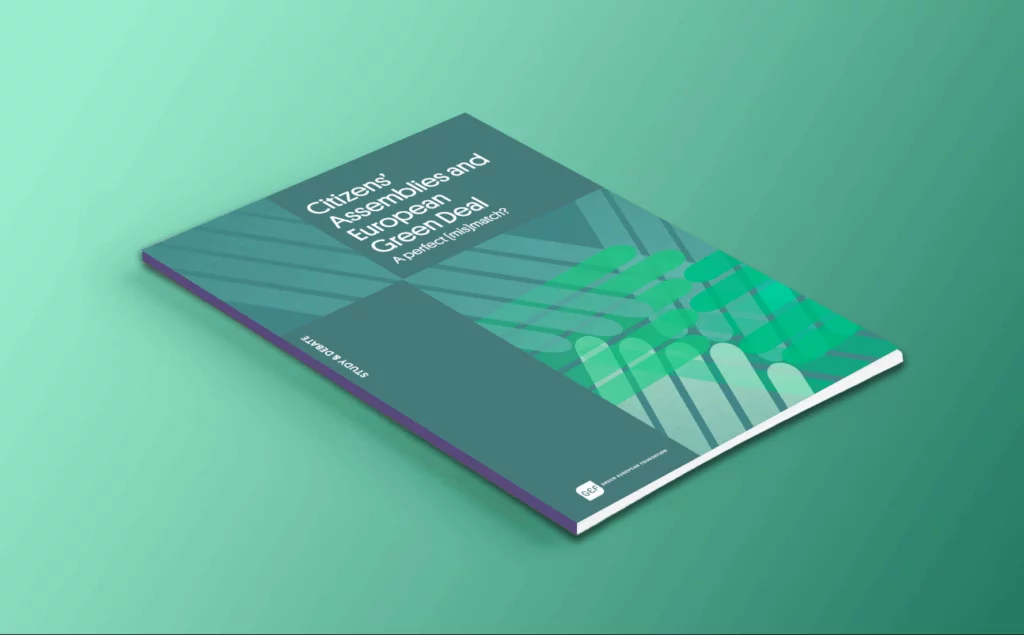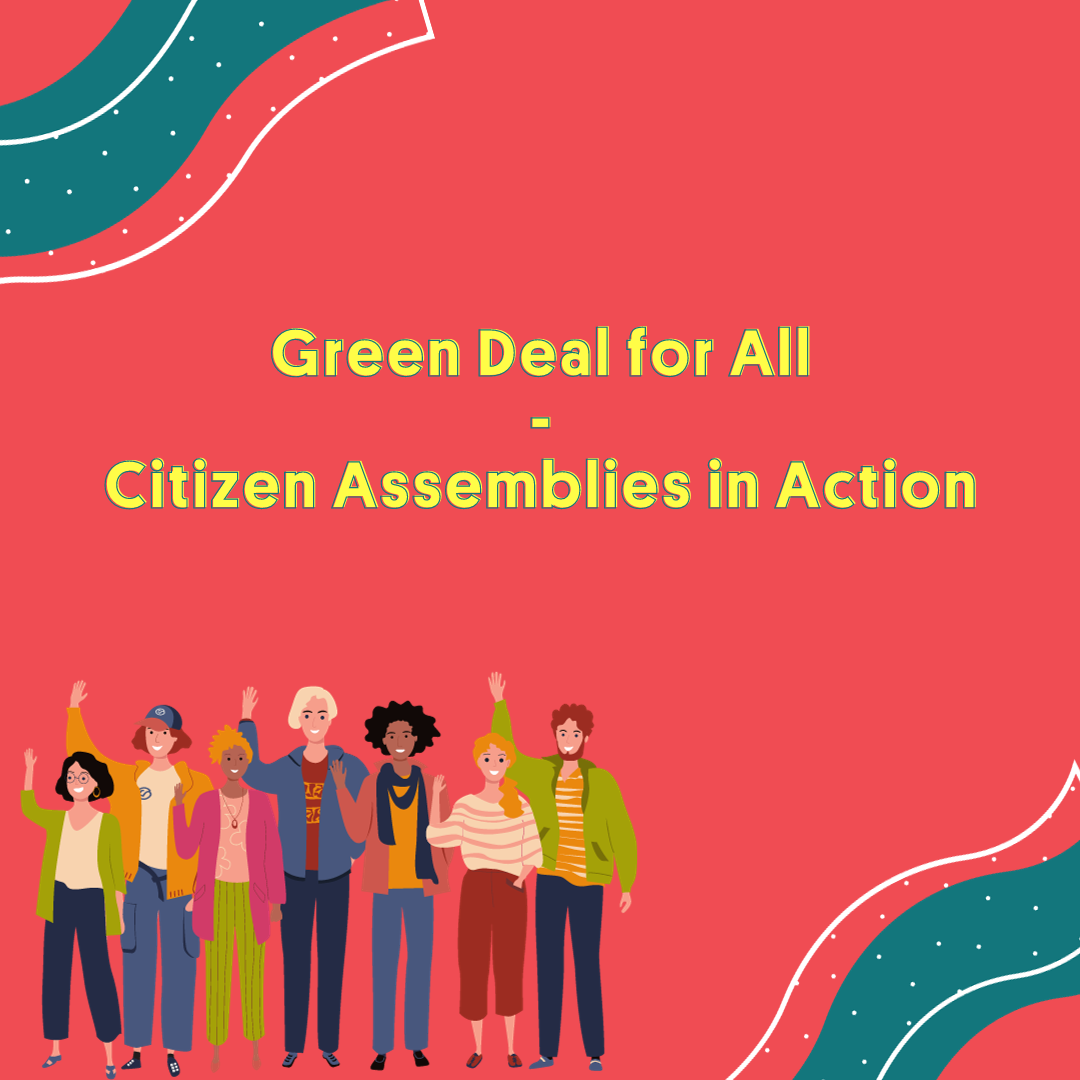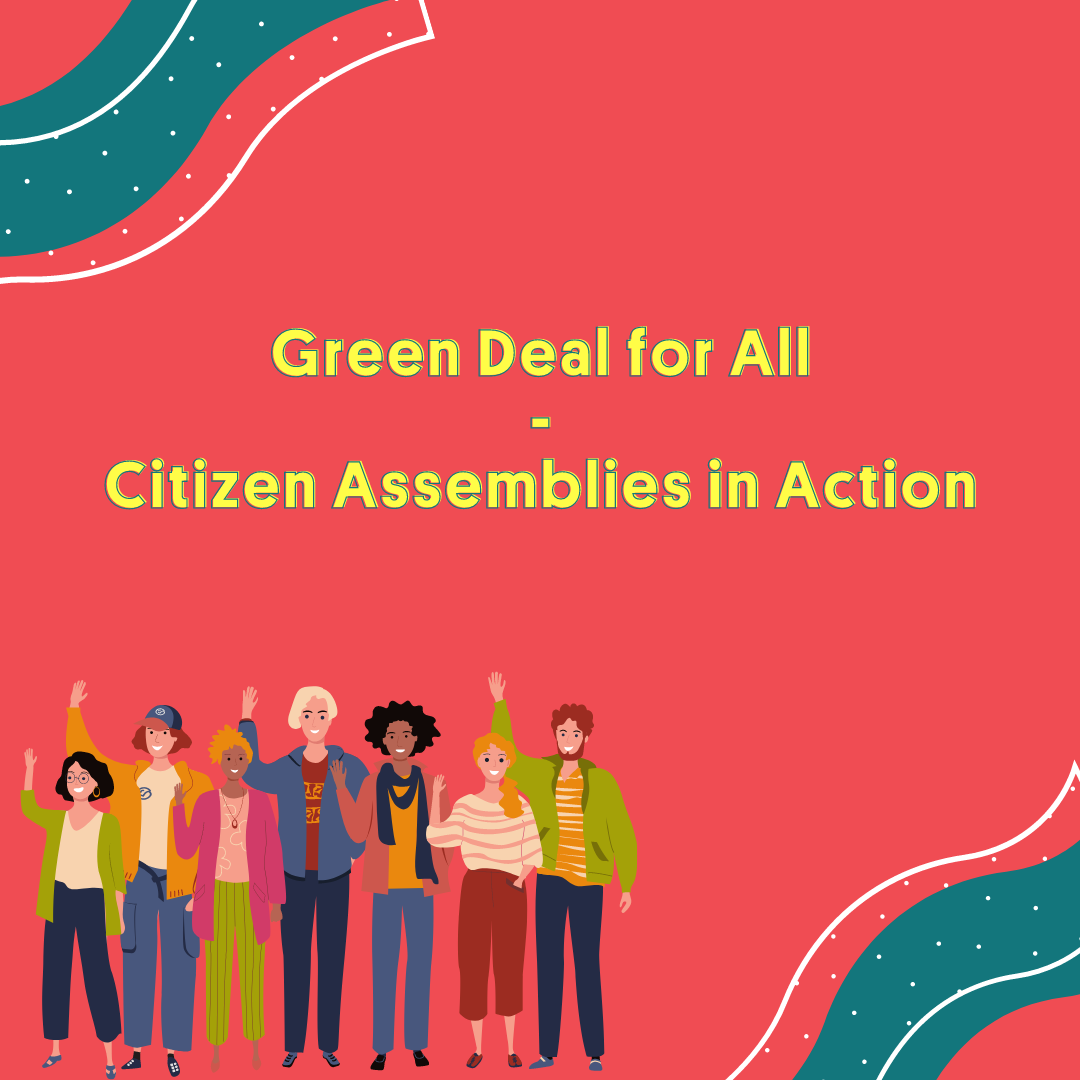
About
The European Green Deal has missed a key chance to tap into the recent deliberative wave across Europe. Yet the green transition is ongoing and must accelerate – with citizens at its core. Its success hinges on meeting people’s needs and embedding social impact in strong environmental policies. Citizens’ assemblies offer a way to ensure voices are heard at all levels, from local communities to EU institutions.
Citizens’ assemblies […] show that citizens coming together propose, more often than governments, bold policies to address the climate crisis while also considering social aspects. This creates a unique opportunity to redesign the Green Deal bottom-up.
This publication is part of the Green European Foundation’s work on Democracy and Participation and is the result of a collaborative process between partner organisations from Belgium, Croatia, Finland, North Macedonia, and Serbia within the project Green Deal for All – Citizen’s Assemblies in Action, organised by the Green European Foundation. Recognising the huge gap between the top-down implementation of the European Green Deal – reduced merely to a series of technological and financial measures – and the needs of various societies and communities across Europe, the aim was to explore the role citizens’ assemblies can play in ensuring its bottom-up democratisation.
This publication is also available in Greek
This publication has been realized by the Green European Foundation with the support of the Institute of Political Ecology, Oikos, Visio, ASSED Sunrise, Polekol and Center for Green Politics, as well as with the financial support of the European Parliament to the Green European Foundation. The European Parliament is not responsible for the content of this publication.




